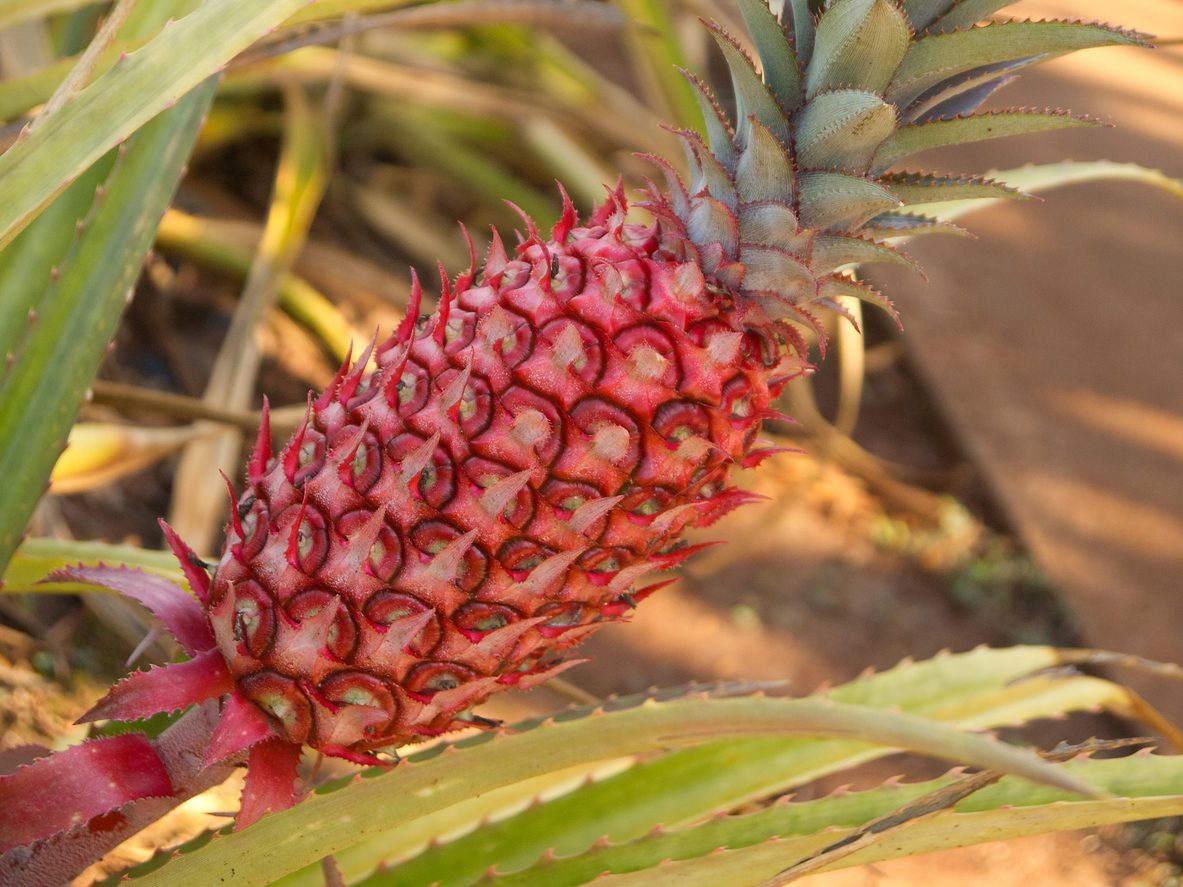Until the early 19th century, exotic fruits such as pineapples were associated with luxury and status, available only to the wealthiest few. However, once the use of steamships enabled improved intercontinental transport, these exotic fruits became more accessible and were no longer considered high value items. Now, it seems that unusual fruit varieties are again becoming desirable commodities.
Patenting plants in the US
In particular, applications for plant patents are becoming more common in the US. For example, the Rubyglow® pineapple, known for its unique red exterior, was patented in the US in 2021 (USPP33544), giving the proprietor, Del Monte®, a monopoly over reproduction and sale of the pineapple variety in the US for twenty years. Del Monte® highly restricts the number of pineapples produced each year, so that each pineapple is seen as a luxury item. Indeed, only 3000 Rubyglow® pineapples were produced in 2025, selling for just under $400 each.
Similarly, the Florida Pearl® pineberry, a strawberry with a white exterior, was patented in the US in 2021 (USPP33477). However, unlike the Rubyglow®, several Florida-based producers are licensed to grow and sell the Florida Pearl®. As a result, they have a slightly more reasonable price tag of around $6 for a 10-ounce package.
Previously, Del Monte® has patented pineapple varieties produced via genetic engineering, such as the Pinkglow®. However, the Rubyglow® is produced via traditional crossbreeding techniques, where a traditional pineapple and a Morada pineapple are crossed through hand pollination and mass selection. In other words, the Rubyglow® is produced using conventional methods to breed from existing pineapple varieties. Similarly, Del Monte® has also patented the Honeyglow® pineapple, whose unique honey gold colour derives from continued mass selection and reproduction, as opposed to any genetic engineering.
Protecting plant varieties in the UK and Europe
Luxury fruit varieties also appear to be gaining popularity in the UK. Department store Harrods has started selling Japanese Kyo no Shizuku Ichigo strawberries for £180 a box (£7.50 per strawberry) and Japanese muscat grapes for £75 a bunch. Indeed, social media trends – where different luxury fruit varieties are tasted and compared – have gained popularity recently.
Patents that individually claim specific plant varieties are not available in the UK and Europe. However, there is protection for specific plant varieties in the UK and the EU via plant variety rights. A plant variety right enables the proprietor to prevent third parties from producing, selling, importing or exporting propagating material of the protected variety, provided that the variety is distinct from known varieties, uniform in terms of its distinctions and stable over several generations. However, using the variety for the purpose of breeding another variety or experimentation is not infringement. There are also exemptions in the UK and the EU enabling farmers to use farm saved seed in some circumstances.
High-street shops have also started selling their own “higher end” fruits, albeit at a lower cost. These sellers appear to be capitalising on trade mark protection and brand awareness. For example, Marks and Spencer have recently started selling their own Red Diamond® strawberries. Although Red Diamond® strawberries are distinguishable by their red colour, large size and high sweetness, the Red Diamond® trade mark does not refer to a single plant variety. Instead, the Red Diamond® trade mark is used to describe strawberries, which are selected using an exclusive M&S classification. For example, the strawberries must meet specific colour, size, sweetness and ripeness requirements. It is clear that trade mark protection also has an important role in protecting luxury fruit products.
It should also be noted that the price of these luxury fruits does not necessarily remain high forever. Take Del Monte’s® Pinkglow® pineapple, released in 2020, which was first sold for about $50; now, it can be found for around $10. The initial high price is therefore either a clever marketing strategy to create buzz around the fruit or perhaps an indicator that these luxury fruits only have limited appeal.
Conclusions
Designer fruits can be protected by several different types of IP, including trade marks and plant variety rights, as well as plant patents in the US. The importance of marketing and brand appeal for high-end products such as these makes securing trade mark protection an important part of IP strategy for any developer seeking to grow and market their own designer fruits.
Read more from our food and beverage practice, here.
Boult advises clients on patents, trade marks and plant breeders rights. An overview of the work of our team can be found here.



